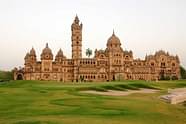After Class 12, the most desirable courses for a science student are BSc Chemistry & BSc Biochemistry. Both courses may sound similar, but there are several differences between them. The following is a detailed comparison of BSc Chemistry and BSc Biochemistry.

BSc Chemistry and BSc Biochemistry are the two most desirable courses for a science student. Both the courses can be opted after the completion of Class XII science studies. There are many students who may not be aware of the difference between the two courses BSc Chemistry and BSc Biochemistry. To help students understand the difference, we have created an article that covers details of BSc Chemistry and BSc Biochemistry degree programmes. Before going into details, let us have a quick overview of both the courses.
BSc Chemistry deals with the study of chemical as well as physical properties of organic and inorganic matters. It can be studied under three branches namely organic, inorganic and physical chemistry. BSc Biochemistry is about the study of compounds in organic matters. It involves the study of chemical compositions in living organisms. Both the courses may sound similar but they are different in many aspects. A bachelor’s degree in Chemistry and Biochemistry opens many career doors in the relevant field.
Let us now make a comparison between BSc Chemistry and BSc Biochemistry course to understand the differences in a better way:
Comparison between BSc Chemistry and BSc Biochemistry
Both BSc Chemistry and BSc Biochemistry courses look similar in certain respects, but there are certain features that distinguish them. Let us explore the similarity and differences between both the courses through the table given below:
Similarity | Difference |
|---|---|
Both are undergraduate degree programme that can be completed in a duration of 3 years |
|
Both courses require candidates to have studied Chemistry in intermediate studies. Both PCM and PCB candidates are eligible to study both the courses |
|
Also Read: Career Scope after BSc Physics
Now that we know the basic similarity and difference between BSc Biochemistry and BSc Chemistry, let us go into the details of both courses:
About BSc Biochemistry
BSc biochemistry is an undergraduate degree programme that deals with core theory concepts along with the laboratory course. The course focuses on discovery and theories about the chemical and physicochemical processes of living species. Candidates who opt BSc in Biochemistry will have in-depth knowledge of biology and chemistry with regard to humans, animals, and plants. They also learn about human physiology, basic immunology, microbiology, enzymology, etc.
It deals with the dynamics and mechanism of the biological activities taking place inside the human body. Biochemistry is a preferred course for candidates who want to work in work areas like medical research, pharmaceuticals, food and packaging industries, etc. Candidates interested in biological processes and research work can take up the course.
Also Read: List of Biochemistry Colleges in India
BSc Biochemistry Job Opportunities
BSc Biochemistry is a career-oriented course and is offered in various colleges in India. Those who are passionate about the study of chemical compositions and reactions want to make a career in this field and can pursue this course. BSc Biochemistry is also a good alternative option for PCB candidates who because of some other reasons cannot pursue MBBS. After the competition of the course, they can work in hospitals and clinics as the demand for Biochemistry candidates are high in the healthcare industry.
Let us have a look at various jobs roles that a candidate can choose after the completion of BSc Biochemistry course are:
Biochemists
BSc biochemistry graduated can pursue a career as a Biochemists and biophysicists. They are the professionals who study the chemical and principles of living things and biological processes such as cellular development, heredity, and disease. They understand the chemical reactions happening in tissues and record the effects of medicines. Biochemist discovers the living organisms at the molecular level and aims to improve the quality of life of living beings.
Forensic Scientist
Biochemistry is of great utility for Forensic Science investigations. Biochemical techniques are usually applied in forensic science like DNA sequencing. Candidates who have a degree in BSc Biochemistry can work as Forensic Scientists in the Forensic department.
Biochemical lab Technician
Biochemistry graduates are high in demand for lab technicians. They plan a major role in the testing of the human sample in labs. They assist medical scientists in laboratories and help them set up, operate, and maintain laboratory instruments and equipment. They regularly monitor and observe experiments and calculate and record results. A Biochemical lab Technician also analyses organic substances such as blood, food, and drugs.
Also Read: BSc Mathematics Vs BSc Statistics
About BSc Chemistry
The study of chemical processes and chemical compositions in living and non-living beings is central to a BSc in Chemistry. It is the study of change at the molecular and cellular levels. Various institutes in India offer a BSc Chemistry course. Aside from the regular classroom course, a BSc Chemistry student is involved in extensive laboratory research projects and is involved in the properties and reactivity of chemical phenomena. The BSc degree is intended to provide a broad understanding of the discipline. Students who are interested in chemicals, chemical reactions, and the chemical composition of both living and non-living beings can pursue a BSc course.
Let us now look at some of the job roles that a student can opt for after the completion of BSc Chemistry course.
BSc Chemistry Job options
Having gained knowledge about chemical reactions and chemical changes at the molecular level, a BSc Chemistry graduate may apply the knowledge in unlimited ways. Those who study BSc chemistry can do many exciting things in a whole range of industries. Here are some of the job roles that are suitable for BSc Chemistry graduates:
Chemist
What could be a better job role to opt for after BSc chemistry to become a Chemist. The chemist also called medicinal chemists are involved in researching and developing cost-effective drugs. While a chemist may be unable to advise on the medical treatment they play a vital in ensuring that the results of using a drug are accurate. They are also involved in finding the root causes of an issue. They also ensure that the research reports are accurately kept.
Researcher
BSc Chemistry graduates can use their knowledge in a range of research sectors like the chemical industry, healthcare industry, pharmaceutical, etc. In a pharmaceutical company, the researcher work on developing and trialing new drugs. In public sector research centers, candidates can help in the development of the healthcare sector of the nation through new discoveries. Most chemistry graduate researchers prove their work in laboratories where scientific methods and standards are used to carry out research work. Chemistry experts help in the discovery of new medicines and vaccines and the manufacture of chemical products and materials.
Chemical Engineers
BSc Chemistry graduates can work as chemical engineers in various sectors like plastic manufacturing, oil and gas industries, and pharmaceutical and packaging industries. Chemical engineers are directly involved in the designing and manufacturing process of chemical products and materials. They are also involved in developing new chemical techniques to improve the efficiency of work. They ensure the safety of chemical processes and help to scale up the processes in the industry.
Healthcare professionals
BSc Chemistry graduates are highly in demand in healthcare industries, especially in laboratories. They are involved in creating patient test results and also act as a helping hand in the diagnosis of disease and assessment of patients.
Pharmaceutical chemist
A BSc has the option to choose the Pharmaceutical chemist job role. Pharmaceutical chemists are directly involved in the analysis, evaluation, and regulation of new and existing pharmaceuticals. These chemists are technical experts who possess strong communication and management skills. A pharmaceutical chemist is more involved in testing and chemical analysis of new drugs and ensures that the product is suitable for consumption.
Toxicology
Toxicology is a fast-growing field for candidates who hold a degree in Chemistry. A toxicologist is a specialist who is involved in identifying the chemical risks and toxins in any chemical that are consumed.
Also Read: List of BSc Chemistry Colleges in India
Hope the above information is relevant for the reader and will help them chose the right course. For the latest educational news and information, stay tuned to Collegedekho!
Are you feeling lost and unsure about what career path to take after completing 12th standard?
Say goodbye to confusion and hello to a bright future!

Was this article helpful?


















Similar Articles
CSIR UGC NET 2024: Answer Key (Out), Result (Soon), Cut-off, Merit List
CUET UG 2025 Login: Application Number, Password, Steps to Retrieve
AIFSET 2025: Result (Out), Registration (Phase 3 - Started), Admission Process & Latest Updates
CUET PG Chemistry 2024 Question Paper
BSc Agriculture Placements in West India: Government Jobs, Private Sector Recruitment, Colleges and Fees
CUET 2025 Application Form Correction Window: Dates, Steps to Edit, Do's and Don'ts